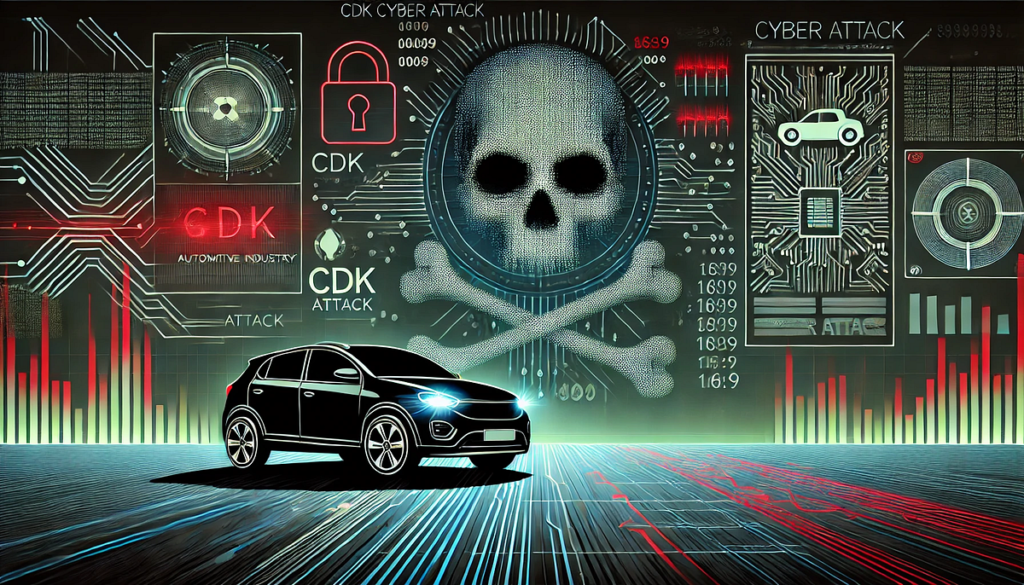In a more virtual world, the automobile industry is not proof against the growing tide of cyber threats. When CDK Global, a leading company of integrated era solutions to the car industry, suffered a cyber assault, the repercussions were felt some distance and huge. This blog publishes pursuits to discover the CDK cyber assault, its effect on car dealerships, and the training discovered to put together better for the following day’s cyber threats. By the end of this newsletter, automobile experts will gain a deeper understanding of the vulnerabilities that caused the attack, the immediate and long-term results on dealerships, and the evolving landscape of cybersecurity inside the industry. Let’s start by unpacking the specifics of the CDK cyber attack.
Table of Contents
The CDK Cyber Attack Explained
Understanding the nature of the CDK Global cyber assault is vital for its impact. The attack became state-of-the-art, exploiting specific vulnerabilities in the company’s infrastructure. Hackers managed to infiltrate CDK’s systems through properly-coordinated efforts centered on weak protection protocols.
The perpetrators leveraged malware and phishing techniques to gain access to sensitive information. Once inside, they moved laterally across the community, compromising several layers of protection and exfiltrating precious facts. The breach highlighted extensive flaws in CDK’s cybersecurity measures, prompting an enterprise-wide examination of similar vulnerabilities.
This attack is a stark reminder that no machine is foolproof, and even enterprise giants are prone to cyber threats. The automotive region, closely dependent on virtual answers, must stay vigilant and proactive in safeguarding its operations.
Impact on Automotive Dealerships
The fallout from the CDK cyber assault became instantaneous and intense, especially for car dealerships. One of the most essential influences was the loss of client facts, such as personal and financial data. This not only risked the privacy of countless individuals, but it also eroded trust between clients and dealerships.
Operational disruptions were another extensive outcome. Dealerships counting on CDK’s offerings experienced gadget downtimes, affecting everything from sales transactions to stock management. These disruptions had a cascading effect, leading to misplaced income possibilities and decreased operational efficiency.
Financial implications have been additionally sizeable. Dealerships faced costs associated with information healing, criminal prices, and ability fines for non-compliance with statistics protection rules. Additionally, the reputational damage incurred may bring about long-term economic losses due to diminished patron loyalty and reduced marketplace percentage.
Response and Recovery Efforts
In the wake of the CDK cyber attack, dealerships needed to act unexpectedly to mitigate the damage and repair normalcy. Immediate steps included setting apart affected systems to save you similarly unfold of malware and beginning guide backups to steady essential records.
Dealerships collaborated with cybersecurity professionals to conduct thorough investigations, determine the extent of the breach, and implement measures to close safety gaps. These efforts extended to notifying clients about the breach and providing assistance, such as credit score tracking services, to mitigate the chance of identity robbery.
Recovery turned into a multifaceted technique. Beyond technical remediation, dealerships needed to rebuild agreements with their customers. Transparent conversation, better safety protocols, and visible efforts to protect facts and privacy have been vital components of this endeavor.
Lessons Learned
The CDK cyber attack imparted several key classes for the automobile industry. First and essential, it underscored the importance of sturdy cybersecurity measures. Dealerships should prioritize normal security audits, worker education on phishing and other cyber threats, and the implementation of advanced chance detection structures.
Preparation for future incidents is equally essential. Developing a comprehensive incident response plan guarantees that dealerships can react quickly and efficaciously to limit damage. This includes establishing clean roles, obligations, communique protocols, and restoration strategies.
Additionally, the assault highlighted the value of collaboration inside the enterprise. Information about threats and vulnerabilities can help dealerships anticipate possible dangers. Industry-extensive boards and partnerships with cybersecurity groups can foster collective protection against cyber threats.
Future of Cybersecurity inside the Automotive Industry
Looking ahead, the automotive industry needs to adapt to an evolving cybersecurity landscape. Emerging traits such as the multiplied use of synthetic intelligence (AI) and gadget learning (ML) in cybersecurity offer new avenues for reinforcing defenses. These technologies can become aware of and reply to threats in real time, reducing the window of opportunity for attackers.
Best practices for protecting against future attacks include adopting a multi-layered protection technique. This entails combining conventional defenses like firewalls and antivirus software with advanced solutions, such as intrusion detection and endpoint safety structures.
Another important component is the continuous tracking and updating of safety protocols. Cyber threats are constantly evolving, and static defenses can quickly become obsolete. Regularly assessing and updating security features ensures that dealerships remain resilient to new and rising threats.
Conclusion
The CDK cyber Attack became a wake-up call for the automobile industry, highlighting the pressing need for strong cybersecurity measures. By understanding the character of the assault, its impact on dealerships, and the instructions discovered, automotive specialists can better prepare for future demanding situations.
In summary, prioritizing cybersecurity is not non-obligatory—it is a necessity. Dealerships must invest in advanced safety solutions, increase comprehensive incident reaction plans, and foster enterprise-wide collaboration to stay ahead of cyber threats. By doing so, they can defend their operations, customers, and popularity, making sure a secure and prosperous future.
For those looking to enhance their cybersecurity posture, consider partnering with experts and staying informed about current tendencies in the area. Your proactive efforts today will guard your dealership for years to come.


